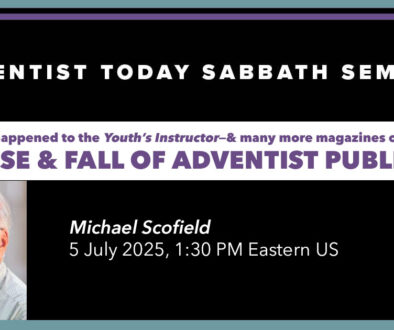Sharing Scripture for April 12 – 18
[symple_heading style=”” title=”Jesus and the Apostles’ View of the Bible” type=”h1″ font_size=”40″ text_align=”center” margin_top=”0″ margin_bottom=”30″ color=”undefined” icon_left=”” icon_right=””]
This is a tool for you to use if you lead a Sabbath School (SS) class or small group. It is keyed to the Bible texts used in the current week’s Adult SS Lesson and includes a brief story from current news you can use to introduce the discussion and then a series of discussion questions in a relational pattern designed to build fellowship and spiritual reflection.
For use: April 12 – 18
Texts: Matthew 4:1-11; 22:37-40; Luke 24:13-35, 44, 45; Luke 4:25-27; Acts 4:24-26
When supermarket shelves were cleared in the last few weeks by panic-stricken buyers, small-scale mills found business booming. One mill in Scotland, which usually receives three to five inquiries over a weekend, found last Monday that 400 orders had come in. To keep up with the demand, the millers are doing “85 percent extraction,” which creates a healthier brown flower with more bran. [1]
“As we know today, darker bread is better for you,” says Bryce Evans, a food historian and an associate professor at the Liverpool Hope University in the United Kingdom.
Some bakeries in the U.K. are giving discounts on bread to health and social care staff, while others hand out loaves for free to those made jobless by the virus. “If standing in supermarket lines during this crisis prompts people to think more deeply and critically about the inequalities and unhealthiness inherent in our food system, all the better,” Evans added.
This week’s Sabbath school lesson encourages us to think more deeply about the Bible, which is compared to life-saving food. We learn how God’s law of love (that we now find in the Bible) is authoritative, and central to what the Savior revealed to humans while here.
The apostles held up the themes of Old Testament Scripture as a reliable source of truth because they saw and heard Jesus honor them. For instance, when facing the devil’s temptations, Christ pointedly stated, “‘It is written, ‘Man shall not live by bread alone, but by every word that proceeds from the mouth of God’” (Matt. 4:4, NKJV).
Although the New Testament was written years after Jesus was on earth, it too is a reliable source of truth, as has been established by multiple sources over time. What a gift we have in Scripture—a source we can trust to guide our lives as we love God and others well.
[symple_divider style=”solid” margin_top=”20″ margin_bottom=”10″]
Connecting: What is your favorite type of bread? How would you compare bread with the study of God’s Word?
Sharing: Read Matthew 4:4. What does this passage teach you about the Bible?
- Bread is a basic necessity in the human diet.
- Scripture (the Old Testament, in this case) is compared to an essential need in our lives.
- While it is possible to live without bread, it is impossible to truly “live” without a knowledge of the Bible.
- Jesus held up the Bible as God’s very words.
- It is important to read the Scriptures with faith that they are divinely inspired and not just human opinions.
- Other…
Applying: Draw a simple picture of an open Bible, then write inside this picture a Scripture text that aptly describes the Word of God to you. For example: Luke 24:27; Matthew 4:4; Psalm 119:105.
Valuing: Do you view the Bible as more essential to your life than your daily food? Phone a friend this week and engage in a conversation about what you’ve been thinking about related to this topic of Scripture. Ask the other person to join you in prayer during the call, praying that you both will hunger for the Word more this week.
~ Curtis Rittenour




